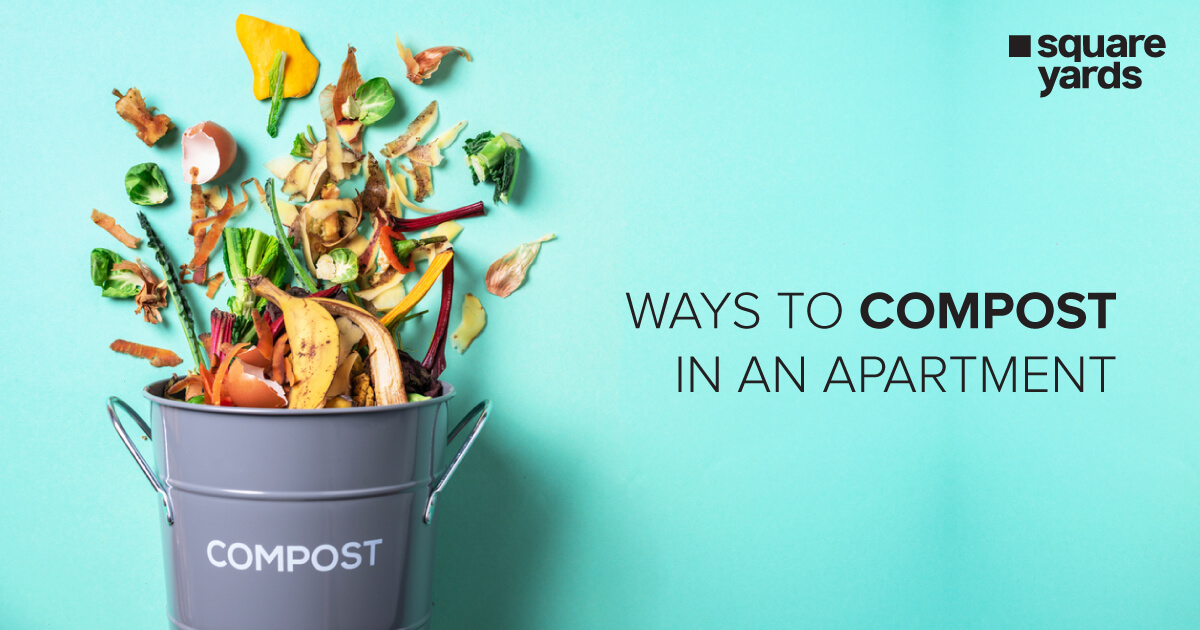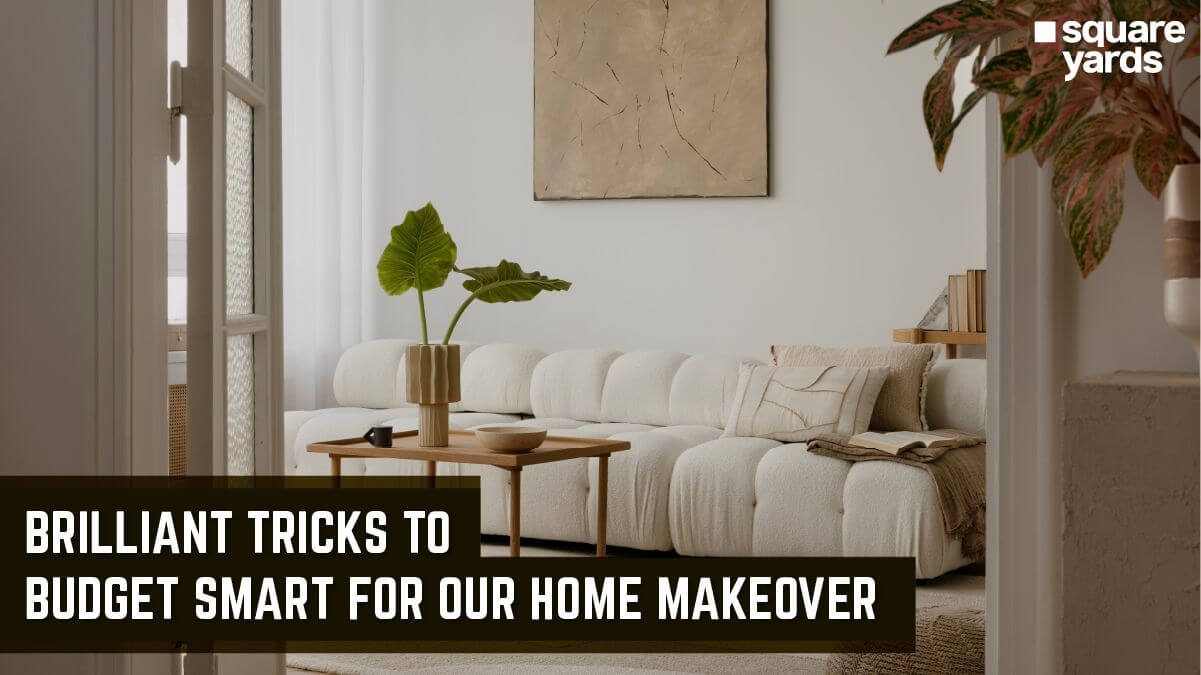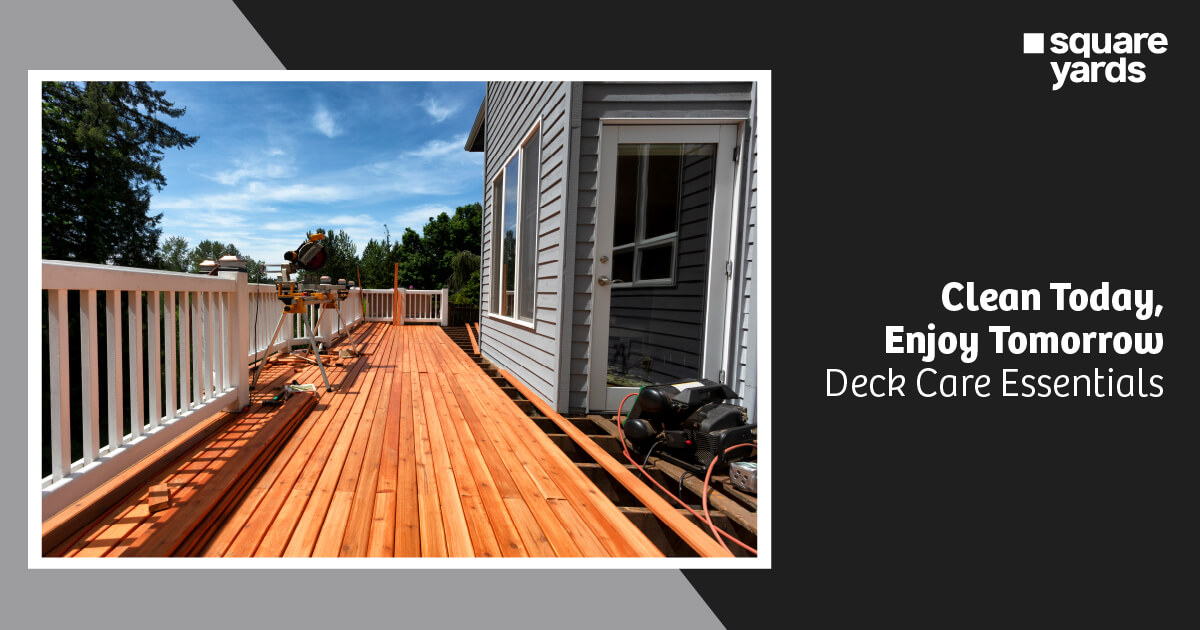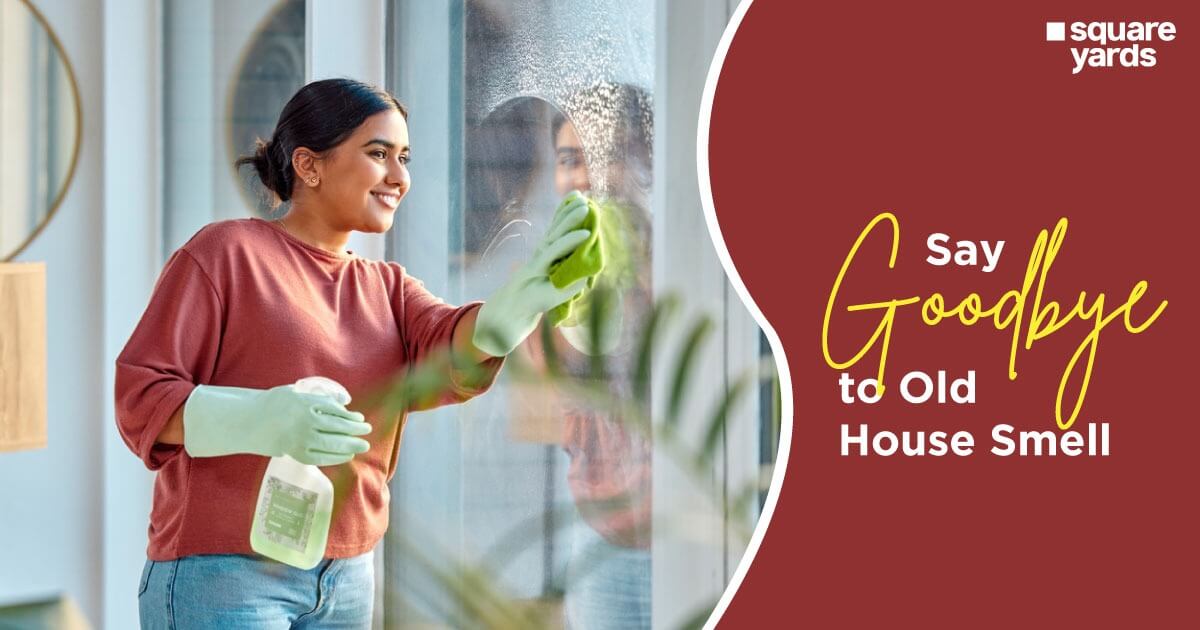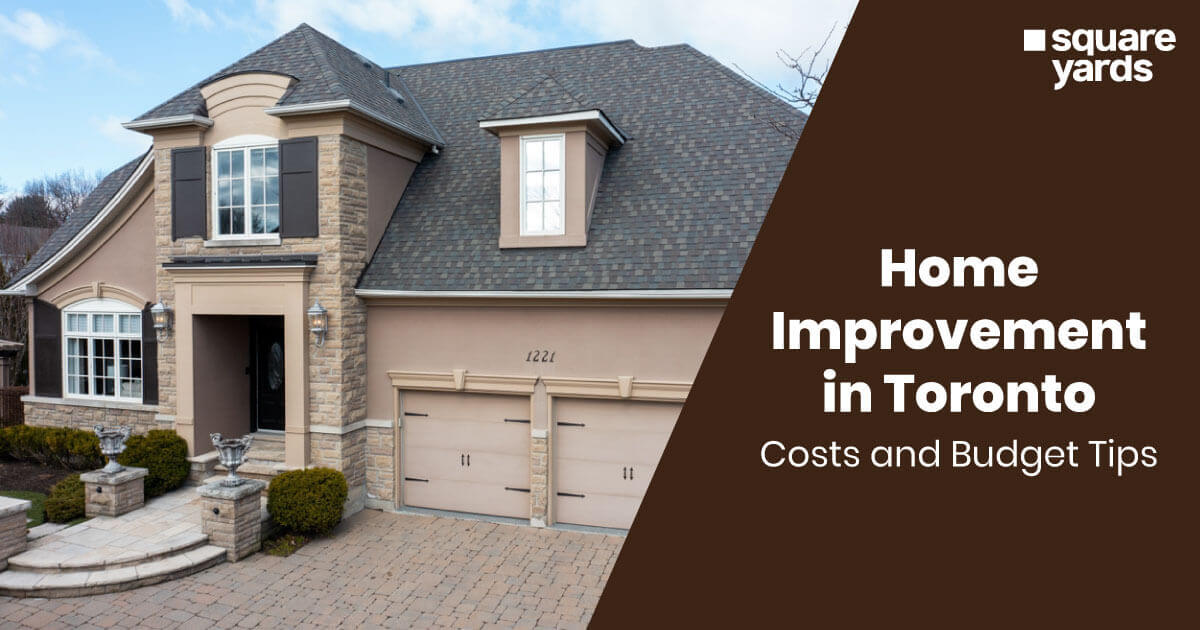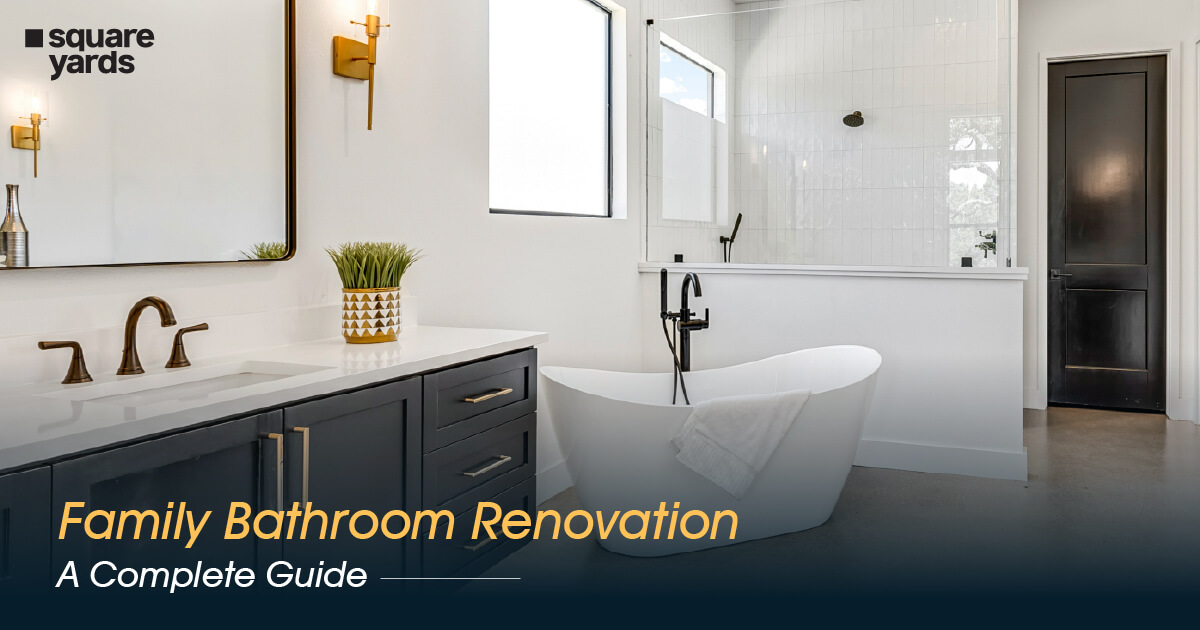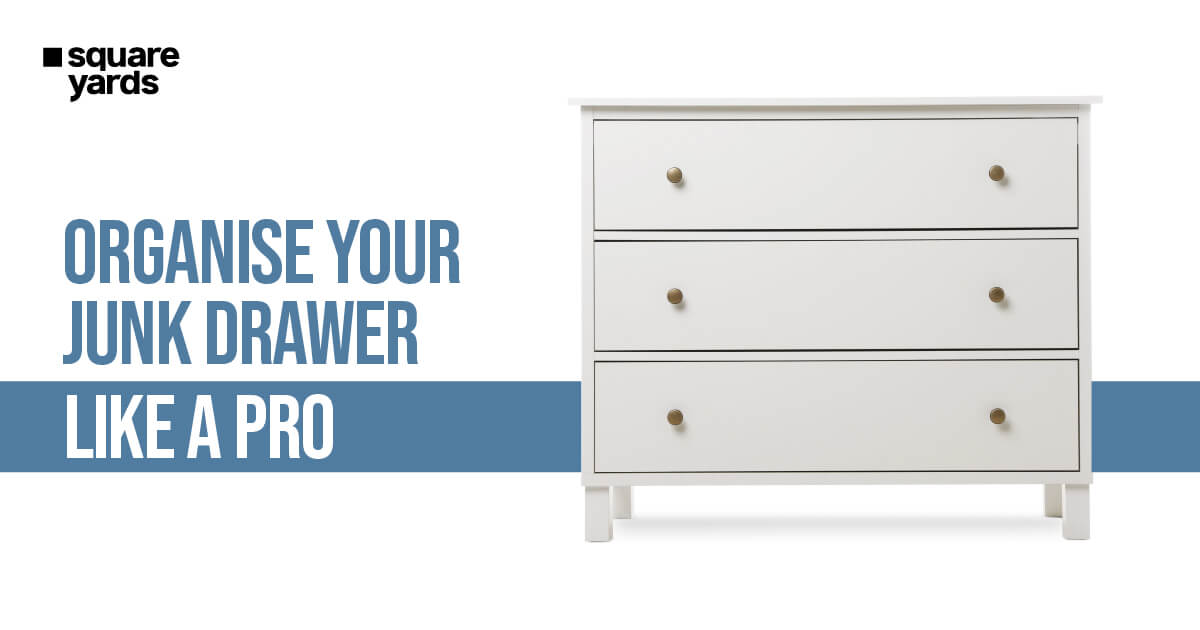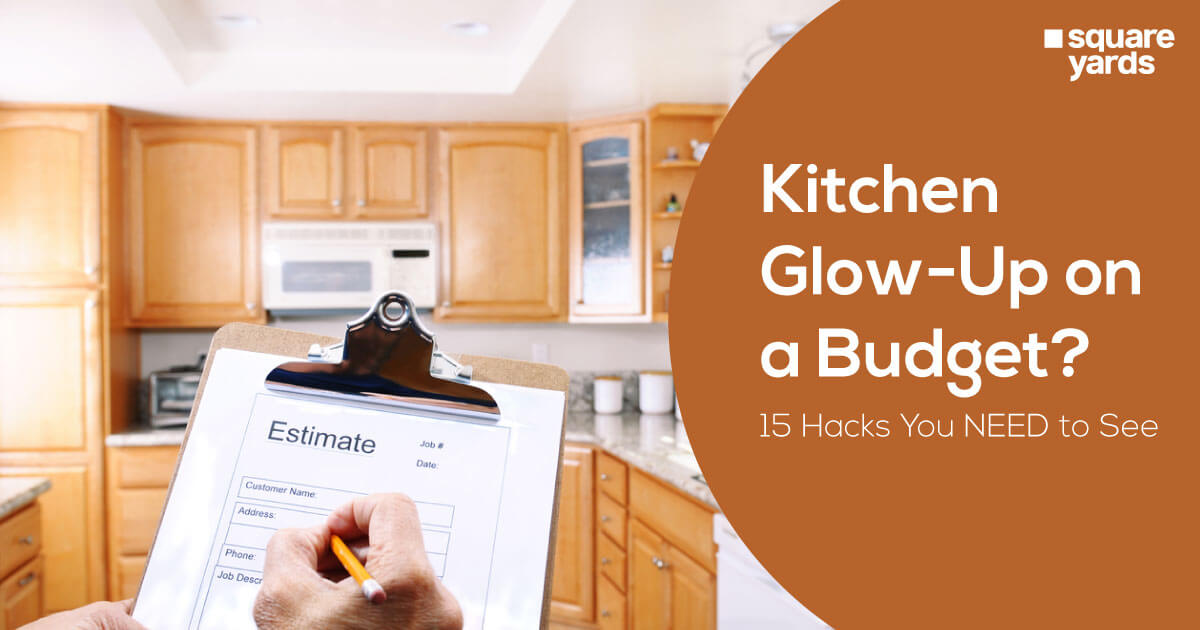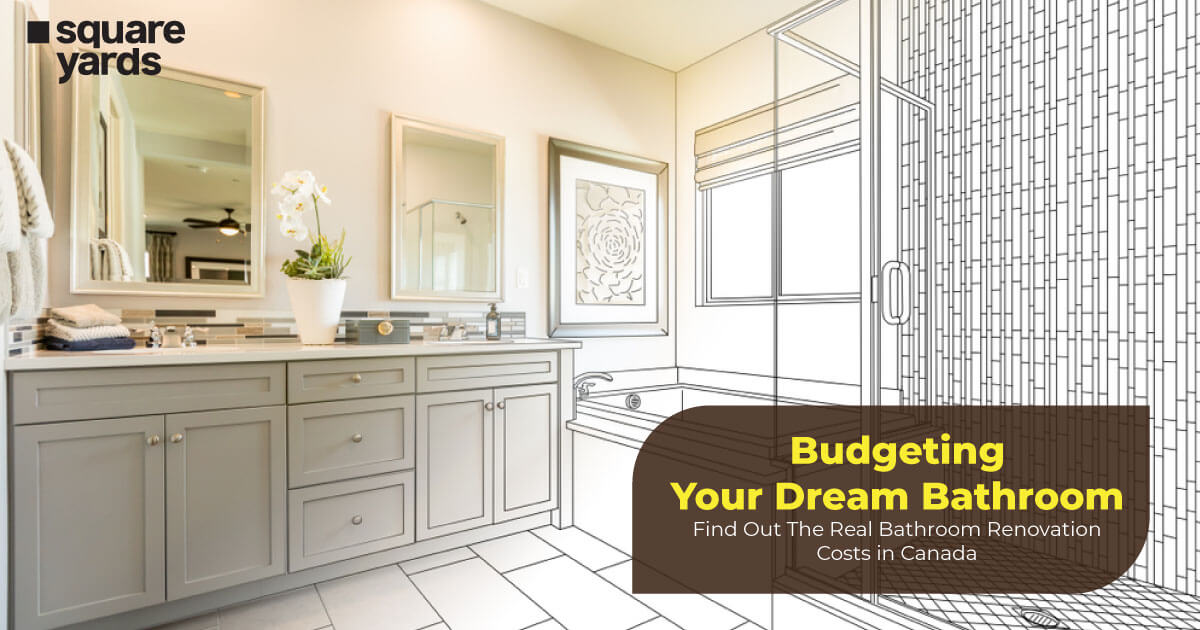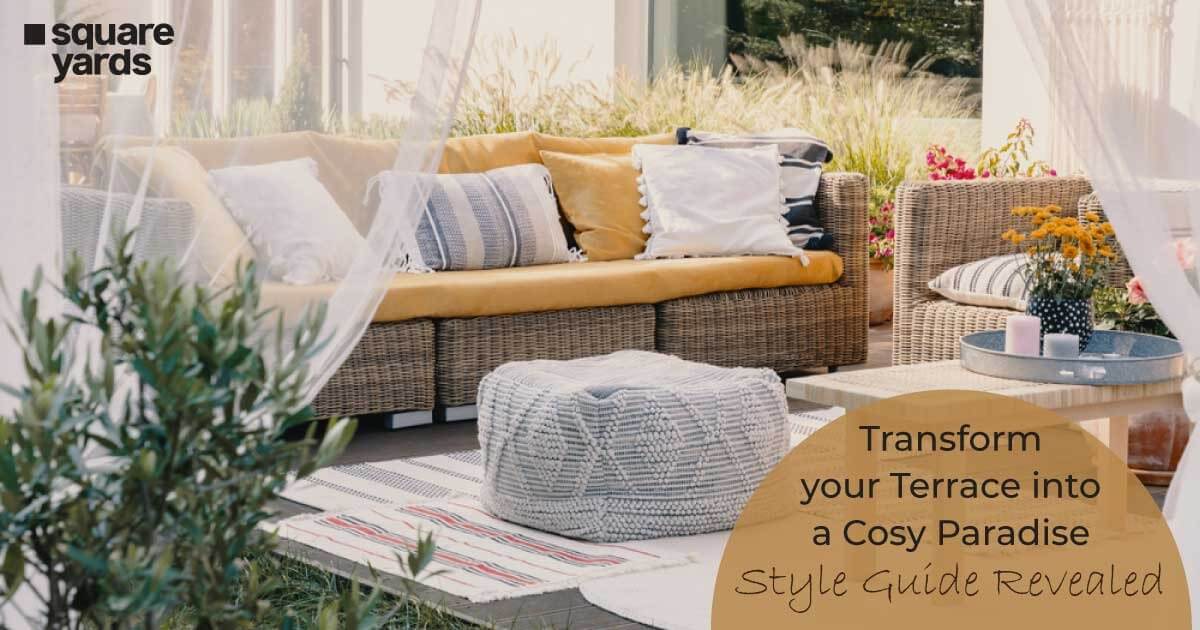Did you know that the total solid waste generated in Canada is around 35.6 million tonnes? This accumulated waste releases methane, a toxic greenhouse gas harmful to the environment. Only about 28% of the total waste produced is recycled. This is why recycling waste and reducing your carbon footprint is essential. One of the ways you can directly contribute to recycling food waste is by starting home composting. When you are Composting in an apartment within the confines you are helping recycle waste and produce nutrient-rich soil.
It is natural to feel overwhelmed if you have never composted before, especially when starting composting in your apartment. But it can be a great DIY activity to experiment with and the fertiliser you obtain from composting your kitchen scraps can be beneficial.
In this blog, we help answer all your questions about composting at home and help you effectively recycle your food waste for a sustainable lifestyle.
What is Composting and Why Should You Do it?
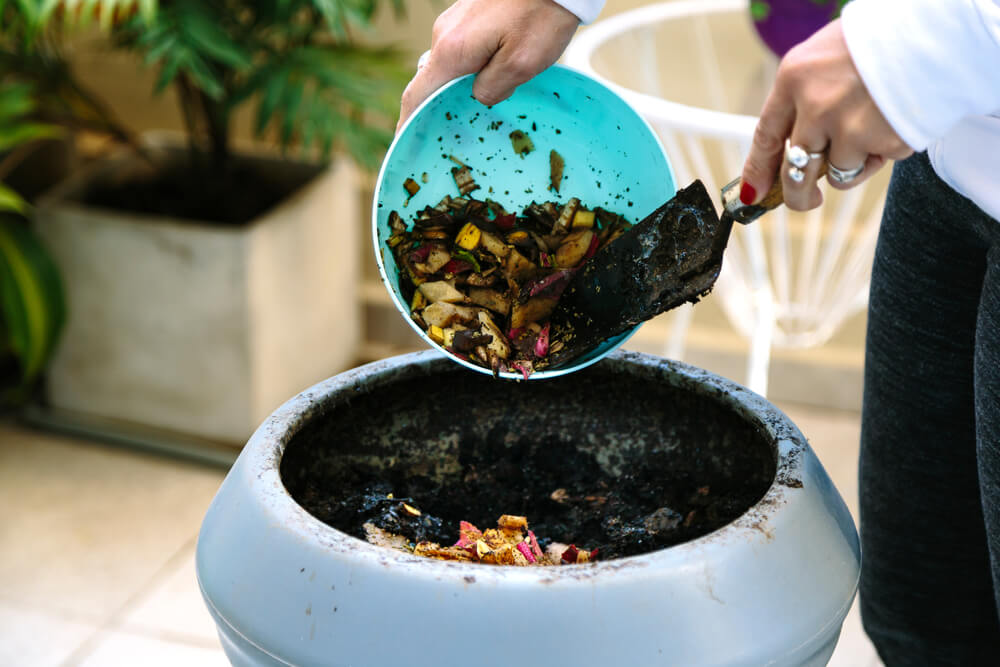
Composting is recycling organic matter, such as food or yard scraps and adding them to the soil to help plants grow. The food and garden waste we throw away accounts for 30% of the garbage that goes to landfills. By composting in your apartment, you can do your part in helping manage this waste better.
Here are the advantages of composting :
-
- Enriches the soil by retaining moisture and preventing plant diseases.
- Reduces our dependency on chemical fertilisers.
- Supports good bacteria and fungi that help break down organic matter.
- Reduces methane emissions from landfills.
Everything You Need To Start
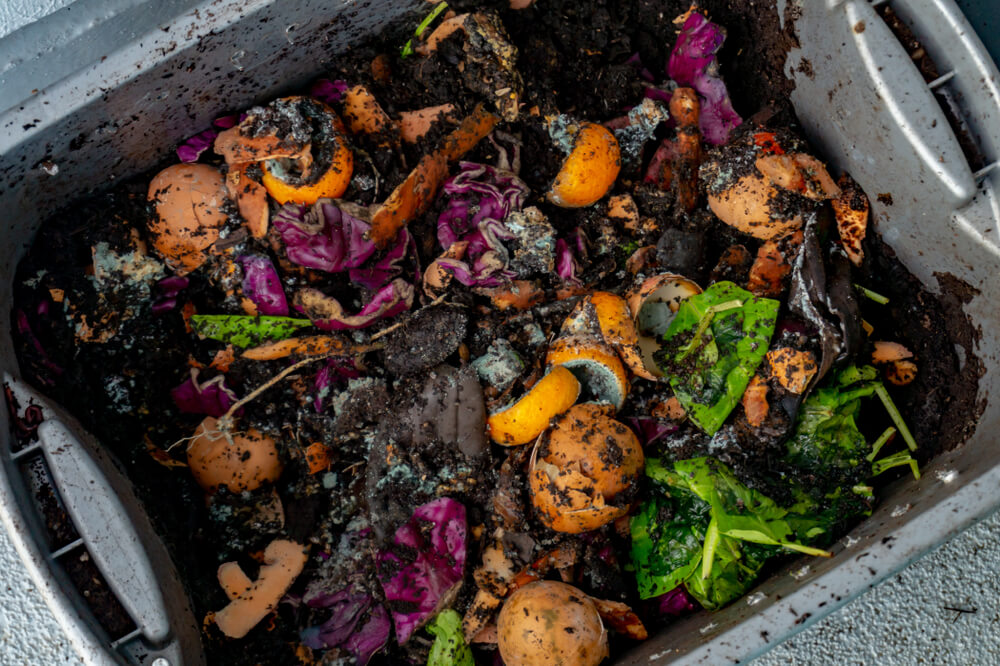
Ready to start your composting journey? Here’s everything you will need to begin composting in an apartment:
-
- Fresh Air – Your compost won’t attract microorganisms without oxygen. Fresh air helps the organisms in your composting pile breathe and do their work.
- Water – It is essential for two critical functions: decompose the pile and regulate the compost pile’s temperature.
- Brown Materials – You need brown materials such as dried/ dead leaves and paper in your pile as this helps to contribute essential carbon.
- Green Materials – You also need to add green materials such as vegetables and fruit scraps since this helps to contribute essential nitrogen.
When adding these ingredients to your pile, you must consider balancing the green and brown materials to prevent undue problems.
What You Can and Can’t Compost ?
You should never add certain things to compost, such as animal products like pet droppings or inorganic materials like plastic. These can impede composting, attract pets, and lead to foul odour.
Here is a helpful list of things that you can and can’t compost:
Things You Can Compost
-
Brown Materials
-
- Eggshells (a source of calcium)
- Vegetable scraps (skins, peels, etc.)
- Nutshells (break them into smaller pieces for faster decomposition)
- Materials soiled by food (delivery boxes, paper napkins)
- Newspapers (black and white only, avoid the ones with coloured prints or glossy pages)
- Cardboard (broken into smaller pieces)
- Dead leaves and branches (break into small pieces; you can also include hay, straw, and pine cones)
-
Green Materials
-
- Grass clippings (a high source of nitrogen)
- Vegetables (spoilt vegetables, broken into small pieces)
- Fruits (unused ones without peels)
- Tea, coffee, and associated materials (tea bags, coffee filters, coffee grounds)
- Old or dying flowers
-
Things You Can’t Compost
- Cooking oil or fat (leftover cooking oil is allowed only if it is in small quantities and is a vegetable oil like corn, olive, or sunflower oil)
- Skins of citrus fruits (banana, lemon, or orange peels; acidic fruit peels can kill your worms)
- Pet droppings (these increase the risk of infecting the pile with harmful parasites)
- Coal ash (contains chemicals that can harm your pile)
- Rotting or diseased plants (weeds or diseased plants since they can harm your plants)
If you are using a kitchen compost bin along with a worm bin, it is best to avoid dairy or poultry items in your pile. They can harm your worms and add a foul odour.
How To Compost in an Apartment?
Composting in an apartment could be a good solution if you want to make a difference to the environment by producing less waste and reducing greenhouse gas emissions. It can be done quickly by picking up some beautiful methods as follows:
-
Steps To Build a Worm Bin
War composters, also known as vermicomposters, are common in home composting. Small, portable worm bins help process household waste fast and create nutrient-rich humus. The best part? You don’t need to turn these kitchen compost bins since the worms do it for you.
Now let’s see Steps to make one and what tools to use.
Materials & Equipment Needed
-
- A Drill
- 2 Plastic Containers
- Water in a spray bottle
- 2 Plastic containers
- Worms
- Shredded 450—950 ml of soil
- Step 1 : Drill 1/8-inch holes in the bottom and sides of one container before inserting it into the other.
- Step 2 : After placing the paper in the top third of the container, spray water until it is thoroughly moistened.
- Step 3 : Add your red wriggler worms and 450 to 950 ml of gardening soil to speed up the decomposition process.
- Step 4 : Include any leftovers from the kitchen in your compost bin. Try to have portions that are one-third of what your bin contains.
- Step 5 : Ensure that the container is placed in a cool, dry place that is not exposed to direct sunlight.
- Step 6 : You can feed worms once a week or every day with scraps of food (no meat, dairy, alcohol, spicy/salty meals – One pound of worms will consume around 3.5 pounds of leftovers in one week.)
- Step 7 : To avoid mould development and smells, periodically empty and clean the second liquid bin. The composter will not wholly decompose garbage for at least a few months and may take longer. While the trash in the first bins is still being processed, it is recommended to have a second set of containers available to take biodegradable waste. However, this depends on the number of scraps fed into the composter.
-
Ready-Made Worm Composter
Instead of making your own worm bin, you can get a ready-made worm composter. Some of the worm-based best compost bin kitchen out there are:
-
- Worm Factory 360
- Maze Worm Farm
- The Essential Living Composter
Tips : Be it a DIY worm bin or a ready-made worm composter, add kitchen scraps only once a week
-
Use Compost Tumblers
When you’re composting in an apartment, compost tumblers can be a great idea. They are larger than worm bins and use the enclosed bin method. They are sealed, which helps speed up the decomposition, keep the heat from the compost trapped inside, and ward off pests.
-
Ferment Your Food Waste
Also known as ‘Bokashi’, it is another composting method you can use in your apartment. This uses a mix of bran, molasses, and EM-1 microorganisms to help break down your kitchen waste compost. This can be suitable for you since most of the work is done for you.
Some of the best Bokashi bins you can choose from are:
-
- Bokashi Living Composting Starter Kit
- SCD Probiotics All Seasons Indoor Composter
- Sunwood Life Bokashi Compost Kit
-
Use Countertop Food Digesters
Your apartment or home will have limited space. For those with a space crunch, countertop digesters are ideal. The food waste in these systems is small and dry; hence the risk of foul smell is nil. These apartment compost bins are electricity-assisted and are as big as a toaster.
Ways To Compost During Pandemic
In unprecedented situations such as the pandemic or emergencies where you’re stuck at home, you can still compost at home.
Here are some creative ways you can compost in these situations:
-
- Audit your fridge – Since it is easy to store and forget food in the refrigerator, it is essential to audit your fridge to segregate the edibles from the ones you want to compost. Check the freshness of the items, segregate the expired ones from those which are not, and check the expiry date. Identify the ones that have gone bad and transfer them to the compost pile.
- Contact a collection agency – If your regular composting drop-off services are hampered due to the pandemic, you can look for other compost pickup services. Although these may be chargeable, trying this out with your community can help you split the costs.
- Directly add them to the plants – You can choose to toss your coffee grounds directly around your plants instead of discarding or composting them. They help keep pests and slugs away.
- Don’t forget your eggshells – If plants and gardening are your things, you can use your eggshells smartly. They can act as cups for new seedlings by offering a safe and semi-porous environment where your plants can grow.
What To Do with Compost?
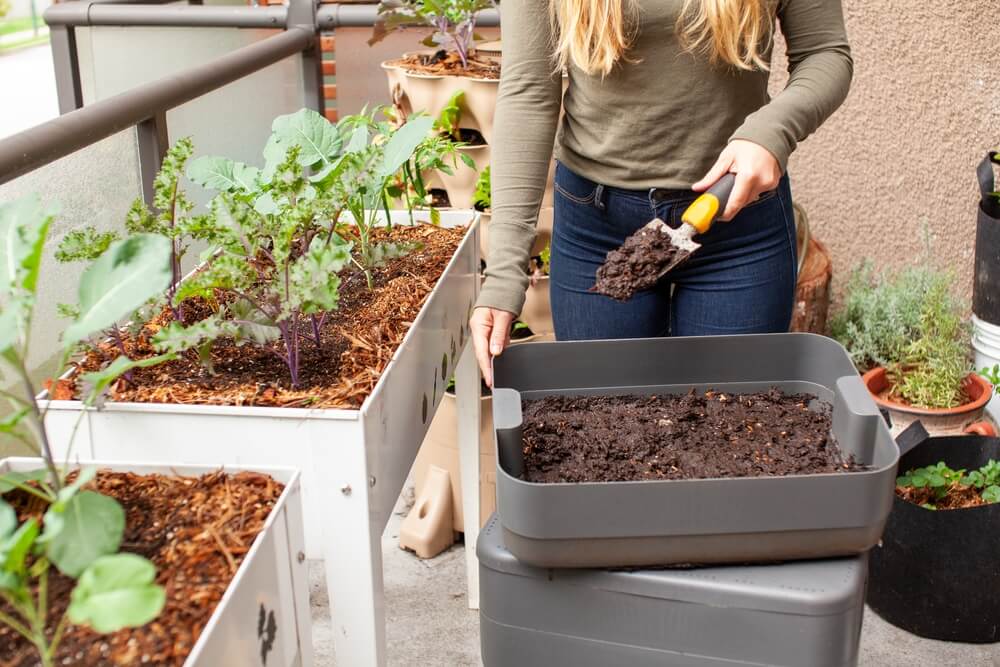
The time your composting takes to be ready depends on the size of your pile and the composting method you have used.
Some of the factors you can use to figure this out are:
-
- Texture – The ideal texture is crumbly and smooth with no signs of any identifiable material, such as peels.
- Smell – It should smell like a forest on a wet day. You must allow more time for your composting pile if there is a sour or foul odour.
- Colour – It should be rich and dark, like coffee or dirt.
Once it is ready, you can use it in several ways :
-
- Use your compost for mulch – You can easily use mulch from your kitchen waste compost for your balcony plants. It helps keep weeds away and your soil to retain moisture.
- Add it to your potted plants – You can replenish the soil in your potted plants with the one from composting.
- Donate – You can donate your finished compost in several places, such as local farms or community gardens.
Urban Composting Tips
Composting is a healthy activity and a great habit since it helps you make the most of the space in your home. Moreover, contrary to popular belief, it does not smell bad, is not super expensive to set up, and is an easy and fun activity.
Here are some tips to help you become a pro at composting:
-
- Choose the composting method that works for you. Depending on the size of your apartment, you can choose which apartment compost bin to use or if you want to go the cold compost pile way.
- Organise your food scrap collection system. If you don’t have a separate place to store your food scrap, it will likely end up in the trash can. A compost collection bin can be a good choice since it will allow sufficient airflow, keep the flies out, and prevent fruits from fermenting.
- Compost in two batches. This way, you can avoid the hassles of a large pile. You can keep the two piles side by side. Working on small piles can also yield results faster.
- Don’t forget to remove the product stickers. The stickers are made from plastic, hence they won’t decompose.
- Keep a lookout for excess fungus. Too much fungal growth can make your pile toxic. You can avoid this by aerating your pile well and balancing the temperature and moisture levels.
Final Words
Reducing your food waste by learning to compost at home is a great way to spend your time effectively and do good for the planet. Hopefully, this guide and the tips shared will help you master the basics of home composting. Soon, you’ll be able to turn your scraps and carbon and nutrient-rich materials into the soil for gardening.
Finally, after the research and effort, it’s rewarding to be a part of a sustainable and green lifestyle to protect the environment. So here’s to a happy and green composting journey!
You May Also Read :
| Canada Real Estate | Gardening Tips For Real Estate |
| Prepare Your House For Winters | Guide To Prepare Your House For Winters |
| Winter Indoor Plants | Tips To Winter Indoor Plants |
| Apartment Decor Ideas | All About Apartment Decor Ideas |
Frequently Asked Question (FAQs)
What are the three things you should not compost?
You should NEVER add these three things to your apartment compost bin: Meat and fish scraps Dairy, fats, and oils Diseased or insect-infested plants
What are three tips for composting?
If you are new to composting or want to improve your existing composting skills, these three tips will help: A suitable apartment compost bin is a must Choose the right spot to place the container. A levelled, well-drained area is ideal. Ensure it gets enough air. Aerated compost piles decompose faster.
How do you compost an apartment balcony?
You can quickly start composting in an apartment balcony. All you need is a bin with at least 75 litres capacity with holes in the bottom of the container to allow air to pass.
How do I start composting indoors?
To start home composting effectively, follow these tips: Create a bed of bare earth Add twigs and straw first Add composting in layers Keep the compost pile moist Cover it Turn it every few weeks
Do you have to compost outside?
With tools such as worm composters or kitchen compost bins, you can easily compost indoors. It is an efficient and odourless method.

